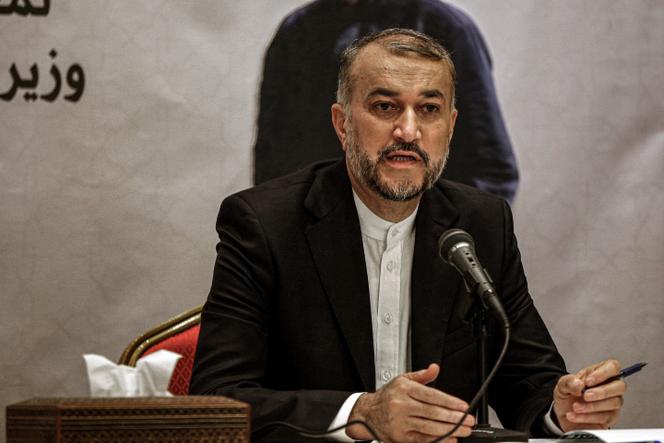


Baghdad, Beirut, Damascus, Doha, New York, Istanbul. Since the Hamas terrorist attack in Israel on October 7, Iranian Foreign Minister Hossein Amir-Abdollahian has been on the move. During a trip to Turkey on Wednesday, November 1, the diplomat hinted at the possibility of opening up other fronts. "If it continues [Israel's military operation in Gaza] like this, resistance groups will opt for another surprise decision and conditions will change. The region [the Middle East ] is very close to making an important and decisive decision. The United States and Israel will be responsible for the expansion of the war," he said.
Earlier, while in New York for the United Nations General Assembly on October 26, speaking at the emergency meeting on the conflict between Israel and Hamas, he had directly threatened the United States: "If the clashes are not controlled, they [the Americans] will not be safe."
Amir-Abdollahian is trying to establish himself as "the spokesman for the axis of resistance," said Hamidreza Azizi, a researcher at Stiftung Wissenschaft und Politik, a Berlin-based research institute for international relations. While the other figures on this "axis" – a coalition of states and non-state actors whose ranks include Iraqi Shiite militias, the Syrian regime and Hezbollah in Lebanon, as well as the Houthist rebels in Yemen – are unable to travel due to Western sanctions that affect them personally, the Iranian head of diplomacy takes advantage of his status to embody their official voice.
Close to the Al-Quds Force, in charge of external operations for the Revolutionary Guards, the country's ideological army, he is banking on his knowledge of Arab Muslim countries in the region. He also serves his role as an intermediary between Al-Quds and foreign affairs under the thumb of the president, the ultraconservative Ebrahim Raissi. "Hossein Amir-Abdollahian was placed in this position so that there would be more coordination between the Guardians and the Ministry of Foreign Affairs. Today, this ministry in Iran no longer carries any weight," said the same researcher.
In August 2021, during his speech to the Iranian Parliament, Amir-Abdollahian emphasized that he would conduct "the military field" and "diplomacy" in tandem. This was a thinly veiled allusion to his closeness to the Revolutionary Guards, in a bid to mark his difference from his predecessor, Mohammad Javad Zarif. The latter, just before the end of his term in 2021, had accused former Al-Quds commander Qasem Soleimani of having damaged the country's diplomatic efforts, particularly during and after the 2015 signing of the Tehran nuclear deal with the West. Three years later, in 2018, the "deal" lapsed after the unilateral exit of former US president Donald Trump.
You have 40% of this article left to read. The rest is for subscribers only.
